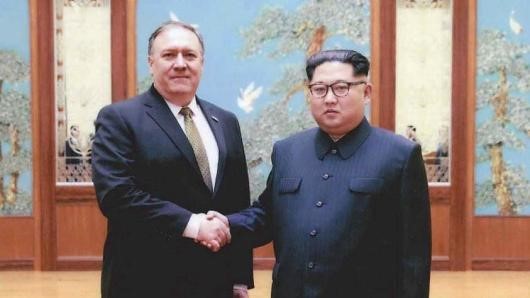Iraq.
Libya.
Ukraine.
These are examples of countries that have, at some point in time given up their nuclear weapons programs.
Ukraine agreed to disarm in 1994 as a part of the Budapest Memorandum.
An active nuclear weapons program was never found in Iraq after the war in 2003 after disarming after the Gulf War in 1991 under a UN inspection regime
Libya gave theirs up in 2004 after seeing what happened to Iraq.
In each instance, however, the outcome was not favorable to the disarming party.
In Iraq, Saddam Hussein was overthrown by the U.S.-led coalition in 2003 and eventually executed by the Iraqi government in 2006.
In Libya, Muammar Gaddafi was overthrown by a U.S.-supported coalition and was either caught in a crossfire or outrightly executed in 2011.
Eventually, in Ukraine, the U.S. backed the ouster of Viktor Yanukovych in 2014, who was then exiled. After, the country was plunged into civil war, and Russia annexed Crimea.
Each of these scenarios likely poses the greatest challenge to disarmament talks between the U.S. and North Korea, which is that the most recent examples of nuclear disarmament have destabilized the disarming nations.
Not exactly a great incentive for North Korean leader Kim Jong-un to disarm today. Which explains his current approach, which was to offer peace and plan a summit, only to start making demands in exchange for the talks, including the U.S. cancelling military exercises or nuclear disarmament as a U.S. policy goal altogether.
Addressing that head on earlier this week, prior to President Donald Trump withdrawing from the Singapore summit, Trump had said of Kim, in a post-nuclear North Korea, “He will be safe. He will be happy. His country will be rich. His country will be hard-working and very prosperous.”
There, Trump was attempting to provide an assurance to Kim that if he gives up his nuclear weapons, he and his country will remain safe.
To get there, however, Trump might need a treaty. Assurances or executive agreements only last as long as the current administration and may not be that reassuring to a regime with longer time horizons.
But those talks cannot be had, either, if North Korea keeps moving the goal posts. The U.S. is not going to give an inch on the military front while Washington and her allies are under nuclear threat.
Nor is the U.S. going to give up on the goal of nuclear disarmament, the stated purpose of the summit.
North Korea would rather have the sanctions lifted and keep its nuclear weapons programs. Kind of like, say, Iran.
That is why Trump had no choice but to cancel the summit. For now.
Yesterday, Trump held out hope that such a summit could still happen, saying on May 24, “Hopefully, everything is going to work out well with North Korea. A lot of things can happen, including the fact — it’s possible the existing summit could take place, or a summit at a later date.”
Perhaps. But not if North Korea does not agree to the stated purpose of the meeting. To get to a resolution, Trump has to thread the needle, that nuclear disarmament and Kim’s survival are not mutually exclusive.
Robert Romano is the Vice President of Public Policy at Americans for Limited Government.







